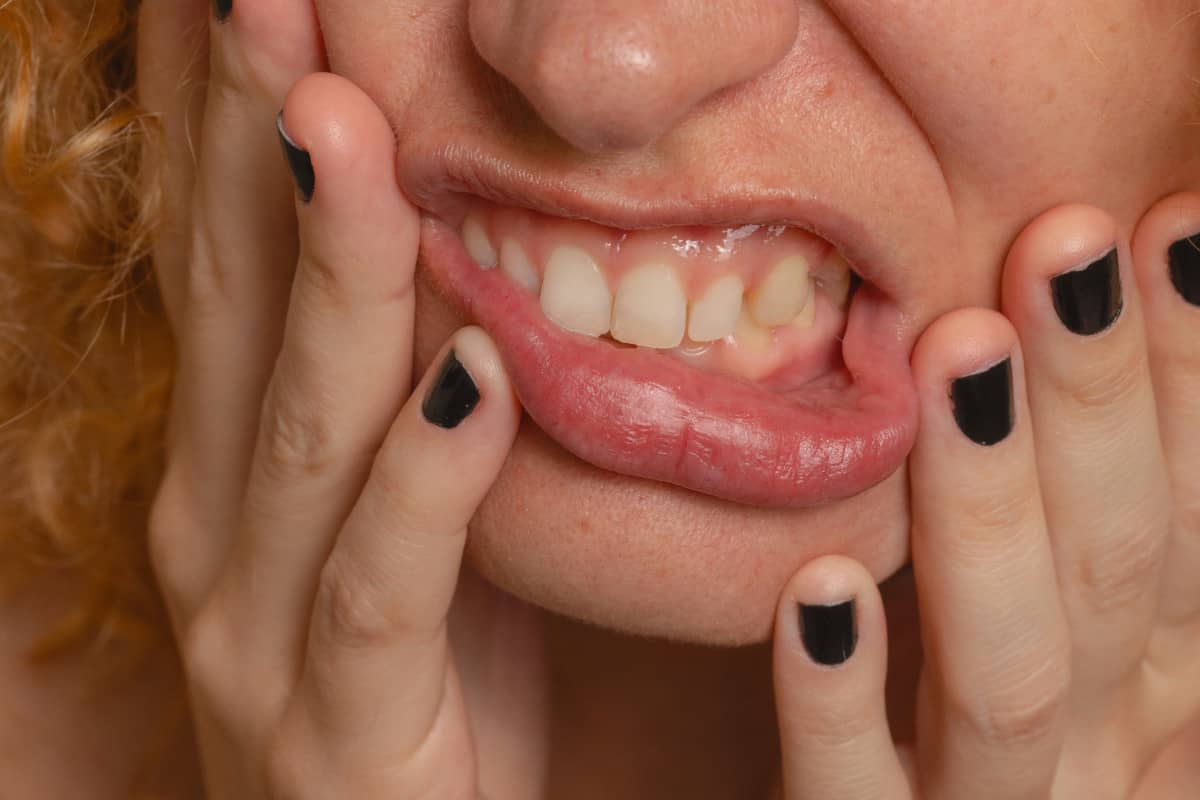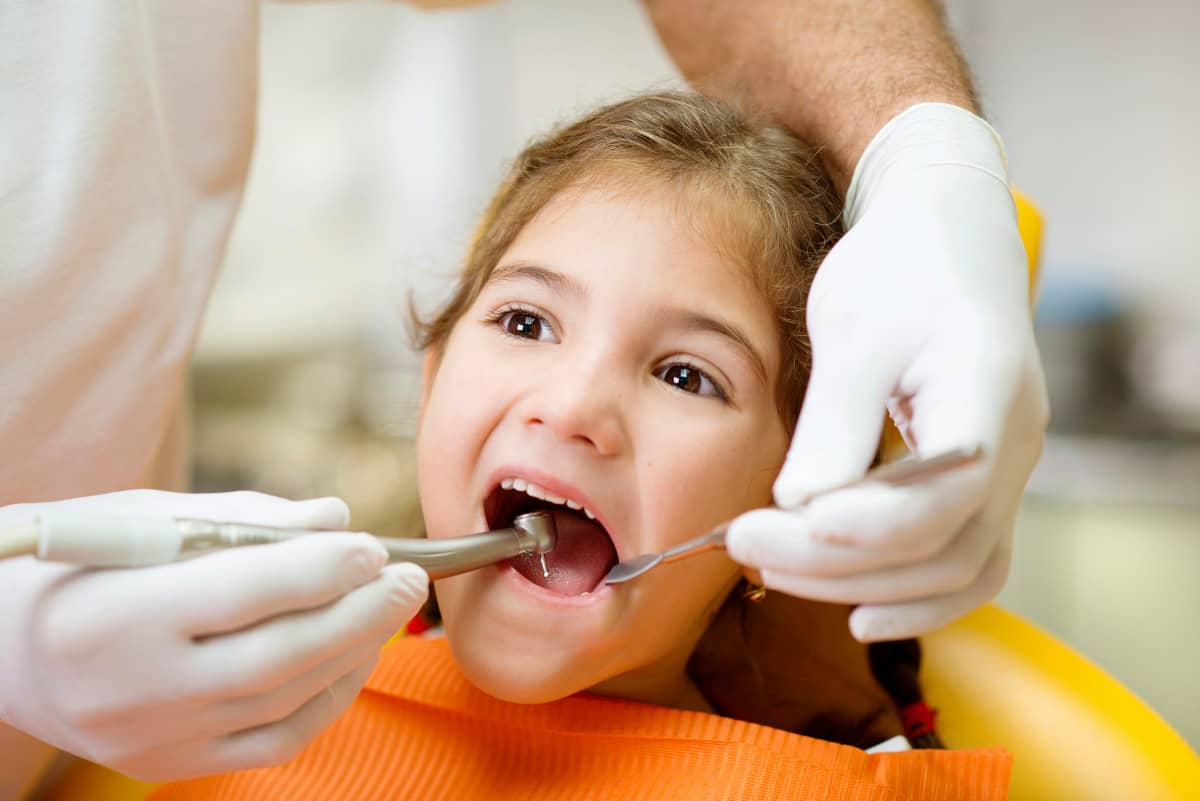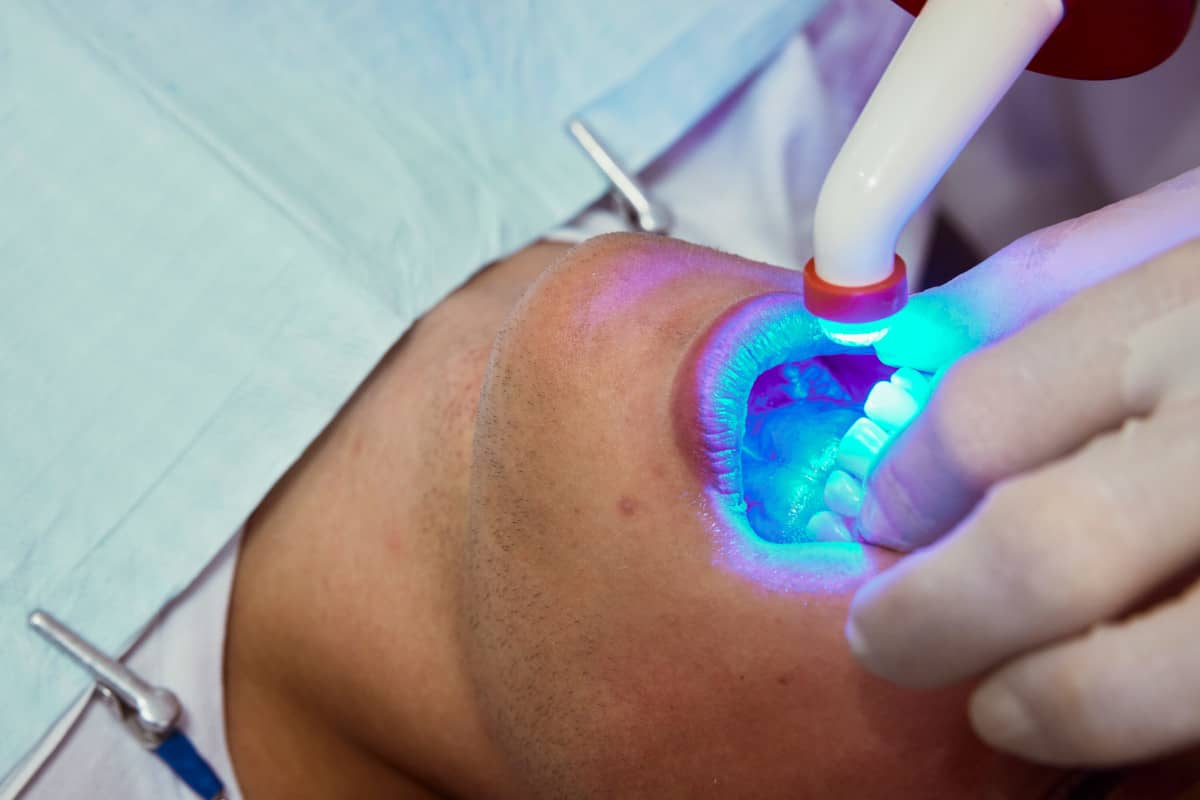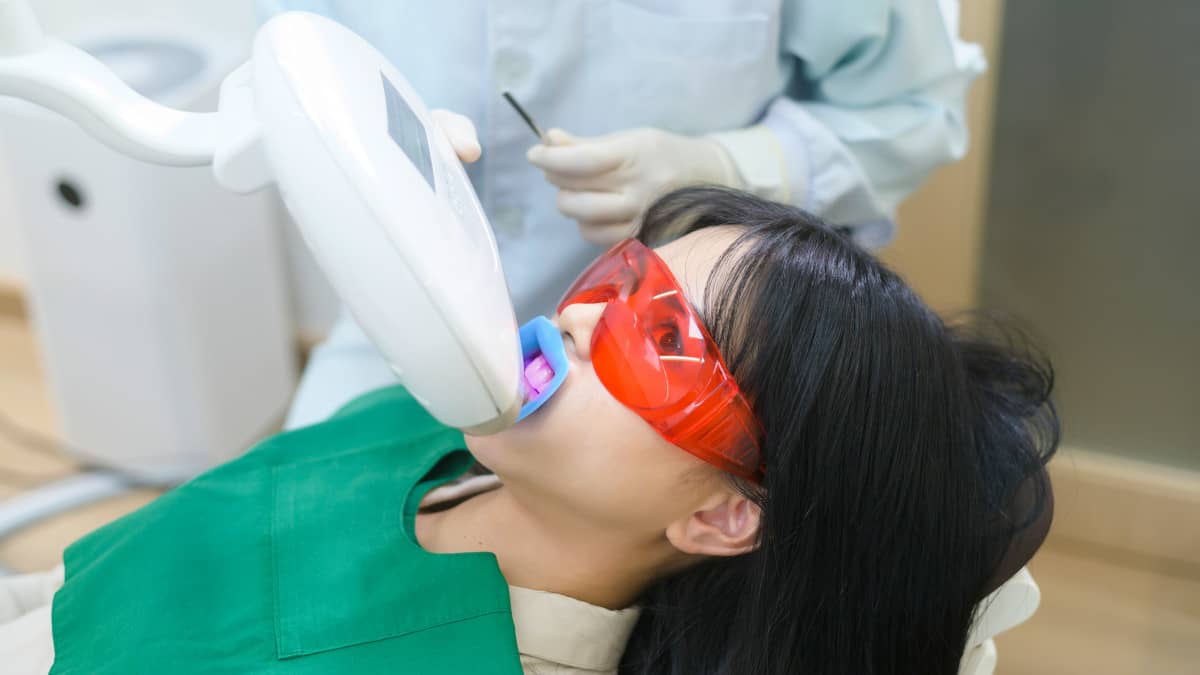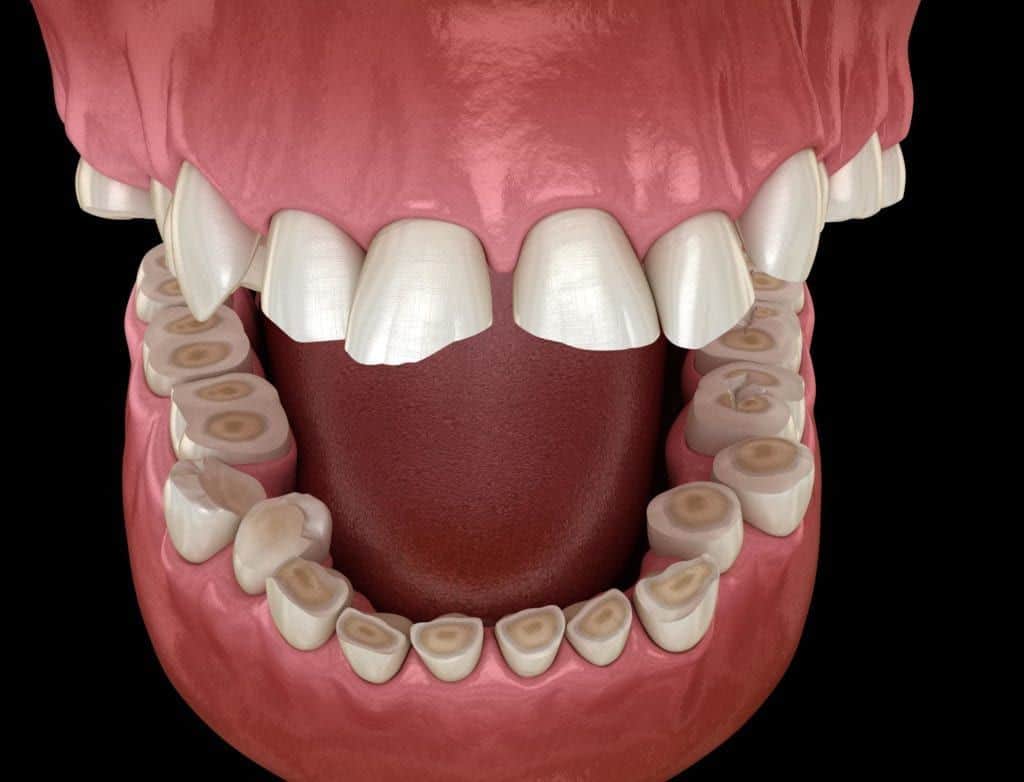
When does dental erosion occur?
Thinning of the enamel due to tooth erosion and dentine appearance is a cause of tooth sensitivity and tooth yellowing.
Tooth erosion
Dental erosion is a process of tooth decay triggered by the excessive presence of acids in the mouth, causing enamel thinning, tooth yellowing and sensitivity to temperature changes.
Dental erosion wear
- Dental erosion.
- Symptoms of dental erosion.
- Prevention of erosion.
- Treatment of dental erosion atClinicas Udemax.
Dental erosion
Dental erosion is one of the four types of dental wear, together with abrasion, attrition and abfraction.
The cause of dental erosion is the decompensation of the pH of saliva due to the action of acidic agents other than bacterial plaque and their prolonged contact with tooth enamel.
Tooth enamel covers the outside of the teeth. Its function is to protect the internal structure of the tooth from external agents. Frequent contact with acid weakens the enamel, exposing the dentine.
These acidic agents can come from sources inside the body (intrinsic) or from sources outside the body (extrinsic).
Erosion from intrinsic sources
Erosion from intrinsic sources is attributable to patients with digestive tract conditions that cause gastro-oesophageal reflux. In this case, acids present in the stomach move up the oesophageal tube into the oral cavity, damaging tooth enamel.
It also occurs in bulimia patients. By vomiting frequently, these patients retain gastric juices in the mouth, which have the same effect on the teeth.
In erosion due to intrinsic sources, the inner side of the tooth usually shows the lesions associated with the pathology.
Erosion from extrinsic sources
This is the most common type of erosion that oral health professionals usually encounter. In this case, the acidic agent is external. The main sources are
- Foods such as wine, sugary drinks, orange and lemon juice, vinegar, fruit infusions, citrus fruits.
- Medications such as acetylsalicylic acid (aspirin), iron or vitamin C supplements.
Symptoms and consequences of dental erosion
Symptoms of dental erosion
- The appearance of tooth sensitivity due to the exposure of the dentine to external agents. Changes in temperature, the ingestion of sugary foods or changes in pressure cause discomfort, ranging from prickling to acute pain.
- Tooth discolouration as the white colour of the enamel fades to reveal yellow dentine.
- Change in the shape of the teeth, becoming more rounded, appearance of fissures on their surface or loss of opacity.
- Appearance of wear on the necks of the teeth, especially on molars and premolars, which can affect the nerve of the tooth.
Prevention of erosion
Avoid contact with acids
In the case of dental erosion from extrinsic sources, make dietary changes to eliminate foods and drinks with acidic ingredients. If you choose to consume carbohydrate drinks, do so through a straw, which will help to avoid contact with the tooth.
In the case of dental erosion from intrinsic sources, eliminate foods that cause gastro-oesophageal reflux and follow a treatment to control and reduce acidity.
Perform fluoride therapy
The application of fluoride varnish or topical application to the dentition has been shown to be effective in reducing the erosive effects of acids.
Use of calcium and phosphates
Calcium and phosphate, as well as fluoride, are elements that reduce the effects of erosion.
Daily brushing
Daily brushing should be done using soft bristled brushes and low abrasive fluoride toothpaste. Avoid whitening toothpastes.
It is recommended to wait 30 minutes between consuming acidic foods or drinks and brushing to allow the saliva to act in this time, neutralising the pH. Otherwise, brushing is favouring the expansion of acids in the mouth.
You can improve the result by rinsing your mouth with water before brushing, which also helps to neutralise the pH.
Daily water intake
Drinking plenty of water daily will help control oral pH and generate acid-neutralising saliva.
Dental erosion treatment at Clinicas Udemax
Initially we will apply a preventive treatment, according to the points documented above. After that, and depending on the damage produced in the dentition, we will apply the following treatment.
- Initial erosion. Application of the treatment described above.
- Moderate erosion. If the dentine has been locally exposed, a composite filling will be applied.
- Severe erosion. When the erosion is widespread, affecting several teeth intensely, causing acute dental sensitivity, reconstruction treatment of the damaged teeth will be applied. Endodontics and the fitting of dental crowns cannot be ruled out.
Our doctors who specialise in dental reconstruction
Find here the dentists specialised in dental reconstruction in Palma de Mallorca.
Make an appointment at Clinicas Udemax and choose the location that best suits you: Udemax in the outpatient clinics of Policlínica Juaneda, in Arcdental or in Emardental, your clinic in the centre of Palma. For more information, call us on .

